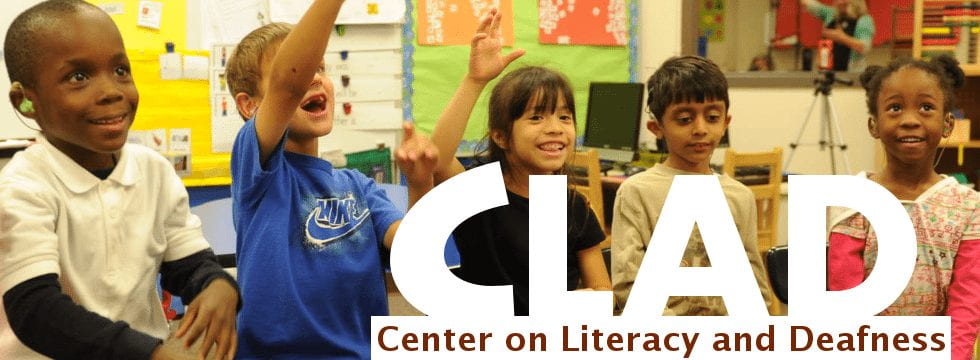back to Background Publications
Easterbrooks, S. R., Lederberg, A. R., Miller, E. M., Bergeron, J. P., & Connor, C. M. (2008). Emergent literacy skills during early childhood in children with hearing loss: Strengths and weaknesses, Volta Review, 108(2), 91-114.
The difficulties for students with hearing loss in gaining proficient literacy skills are well documented. However, studies describing the nature and variability of emergent literacy skills for students with hearing loss or the rate at which progress occurs at young ages are limited. We assessed emergent literacy skills and outcomes at the beginning and end of a school year for 44 young children (mean age = 5.2 years) who are deaf and hard of hearing and who had some speech perception skills. These children generally showed gains similar to their peers with typical hearing in knowledge of letter names and common written words, but lagged in phonological awareness skills. Correlational analyses suggest that these skills were systematically related to the children’s literacy development, similar to what has been found in children with typical hearing. The results show that children participating in this study progressed on some phonological awareness skills (alliteration, blending, and elision) but not on others (rhyming, syllable segmentation). This article discusses the relevance of the findings for an emergent literacy curriculum.
